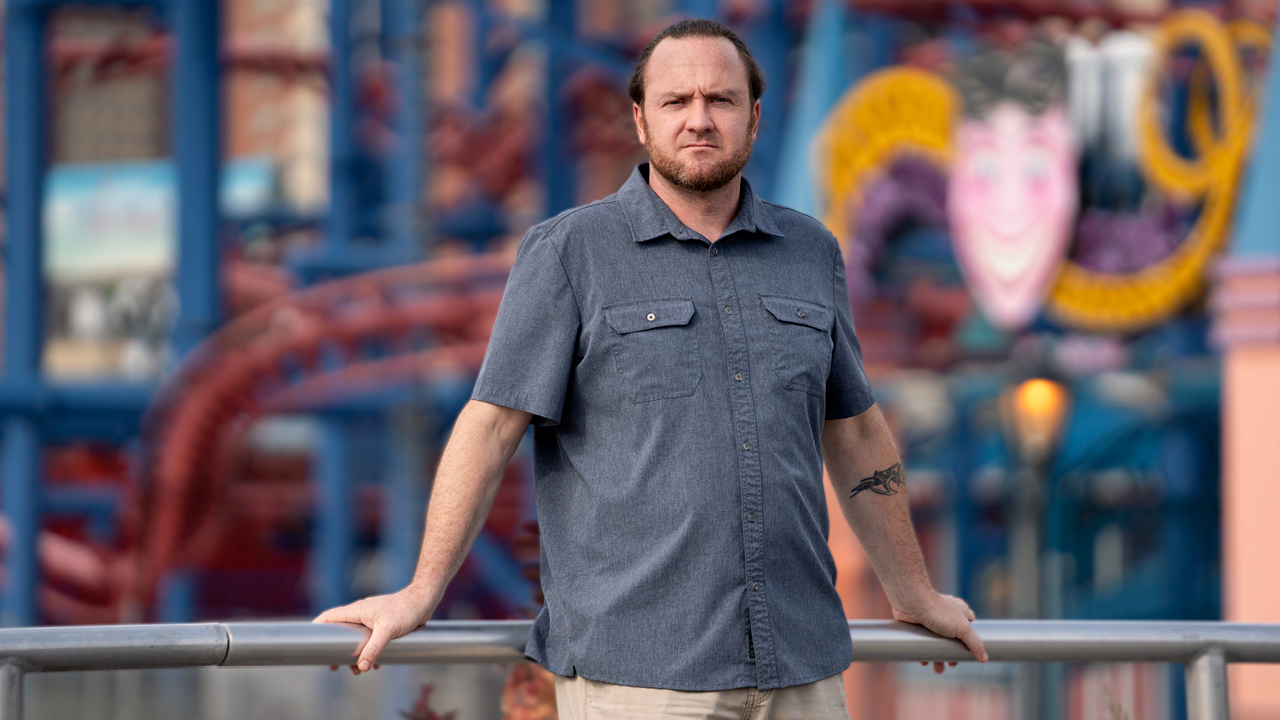Mental health care options give Veterans many ways to heal
3-minute read
Mental health care options give Veterans many ways to heal
3-minute read
For each Veteran, the most suitable and effective treatment for their mental health challenges and needs can differ, depending in part on their diagnosis, circumstances, and preferences. That’s why VA offers individualized care, adjusted to find what works best for each Veteran.
The experiences of Ryan, Greg, and Bridget are cases in point. The 3 Veterans are among those featured in VA’s May 2024 Mental Health Month campaign, which focuses on how Veterans live fuller lives through mental health treatment. Ryan, Greg, and Bridget attained that goal in different ways thanks to the breadth of mental health support that VA offers.
Ryan: Cognitive behavioral therapy

About Getting Support, Marine Corps Veteran Says: “It felt good to talk to somebody that listened.”
Ryan served in the U.S. Marine Corps from 2001 to 2010, which included the Battle of Fallujah in 2004. After transitioning out of the service, he faced challenges with his physical and mental health—including traumatic brain injury, chronic migraines, back pain, and posttraumatic stress disorder (PTSD).
“There were times I was driving home and the whole forest would disappear and turn into a desert landscape. It felt like I was back on patrol again,” Ryan says. He also experienced nightmares and “days I just wanted to break everything.”
Cognitive behavioral therapy helped him the most. “It felt good to talk to somebody that listened and took my story into account and actually gave me feedback on how to deal with things,” he says.
Ryan found a new job after starting therapy. He says the benefits of treatment also helped him forge a closer relationship with his son. He urges other Veterans to take that first step in exploring their mental health care options. “Took me awhile, but you know, eventually, it worked out,” he says. “You just have to do it.”
Greg: Medication, counseling, and 12-step recovery
During and after his service in the U.S. Army from 1985 to 1988, Greg faced challenges with depression and substance misuse, which got him into trouble for 2 decades. Nothing helped for the long term until he decided to visit a VA hospital in Montrose, New York. Greg got on track to recovery by starting medication for depression, following a 12-step recovery program for his substance use disorder, and addressing his mental health through therapy.
One early discussion with his counselor was pivotal. Greg recalls the counselor saying to him: “You’ve been spending over 30-something years hating yourself. Let’s try liking you first. We’ll get to the love.”
“I understand what she meant,” Greg says. “She helped me.”
“Mental health for me, for this person, it wasn’t just the depression. It’s a thing where I needed to talk,” Greg says. “It felt like this overwhelming relief.” Greg maintained his abstinence from drugs, enrolled in college, met his wife there, and bought his first home.
“There’s a lot of Veterans out there that suffer from mental health, drug addiction, that need help,” Greg says. “And if I can tell them one thing: Go to the VA. It saved my life.”
Bridget: DBT and EMDR therapy
During her service in the U.S. Navy from 2000 to 2005 as a helicopter crew airman, 3 situations deeply affected Bridget’s mental health: the crash of a helicopter during a flight she was originally scheduled to be on; her Survival, Evasion, Resistance, and Escape (SERE) School training; and abuse inflicted by a service member she began dating just after her SERE School training ended.
No one died in the crash, but the near miss contributed to her fear of flying. The partner abuse “destroyed my life and love and relationships,” Bridget says. She estimates that, between SERE School and the abuse, she took around 100 blows to the head.
Experiencing challenges in the years after her service, Bridget began mental health treatment. She credits psychodynamic therapy, dialectical behavioral therapy (DBT), and eye movement desensitization and reprocessing (EMDR) therapy with helping her understand her PTSD symptoms and how to manage them.
“This stuff is going to live with me for my life, but I know now how to find the tools when I need them instead of burying it and feeling so much shame about it,” Bridget says. She advises other Veterans to be open to different treatment options.
“Not every therapy is for everybody, but give everything a chance,” she says. “Find the thing that is right for you.”
